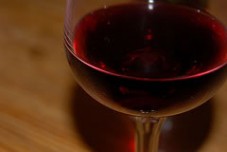Loss of memory with advanced age is a significant problem within most societies, and appears particularly severe in advanced industrialized nations. A less visible and often ignored problem comes from a food supply high in cholesterol and saturated fat, which has led to high obesity rates particularly in the United States. In a study published in the June issue of the Journal of Alzheimer’s Disease, researchers from the Medical University of South Carolina (MUSC) have linked memory loss to a diet high in saturated fat and cholesterol. [continue reading…]
June 2008
Wonder if you could be one of “those ” parents who rant and rage at their kid’s soccer game? Well, you don’t have to look much farther than your car’s rearview mirror for clues.
According to a new study in the June issue of the Journal of Applied Social Psychology, if you have a tendency to become upset while driving, you’re more likely to be the kind of parent who explodes in anger at your kids’ sports matches.
Research by kinesiology Ph.D student Jay Goldstein of the University of Maryland School of Public Health found that ego defensiveness, one of the triggers that ignites road rage, also kicks off parental “sideline rage,” and that a parent with a control-oriented personality is more likely to react to that trigger by becoming angry and aggressive. [continue reading…]
There’s no question that drugs to treat attention deficit problems have been life-changing for many families. They can relieve symptoms of hyperactivity and allow children to focus during school studies.
But often these benefits come with a cost. Common side effects of drugs used to treat attention deficit hyperactivity disorder are mood changes, weight loss and sleep problems. As a result, many parents are turning to nondrug remedies to help their children.
Link to read article:
New York Times
Tara Parker-Pope
June 16,2008
 It’s often perceived that one glass of red wine can be good for you but current research is challenging this view. So, are there any health benefits from drinking alcohol?
It’s often perceived that one glass of red wine can be good for you but current research is challenging this view. So, are there any health benefits from drinking alcohol?
Dr Tanya Chikritzhs, an epidemiologist from Curtin University in Western Australia, has been researching hundreds of studies to find out if there’s any evidence that alcohol can protect against heart disease and cancer. While Creina Stockley, a pharmacologist from the Australian Wine Research Institute, has reviewed and researched the apparent health benefits of alcohol.
Not surprisingly, the findings from the two scientists are quite different.
Dr Norman Swan distils fact from fiction to in order to answer the question, how much is too much?
![]() Link to watch Catalyst Video 6:30mins ( requires windows media or real player)
Link to watch Catalyst Video 6:30mins ( requires windows media or real player)
Source: Catalyst, ABC
